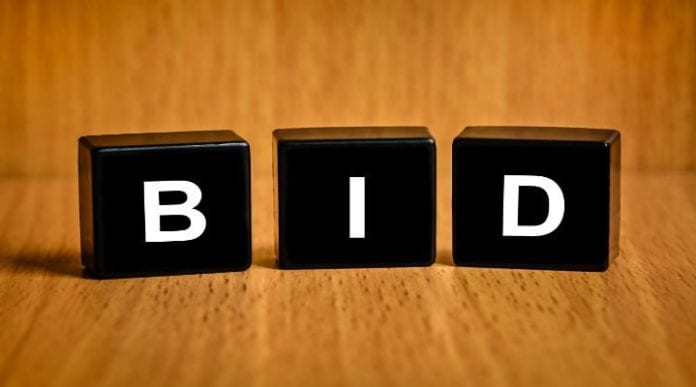From a field of 57 qualified bidders, the eagerly anticipated C Band auction has raised $1.7 billion in its first round and $1.9 billion in its first day of bidding.
Two rounds of bidding were held on Tuesday, each lasting two hours. Starting Wednesday, rounds in Auction 107 (aka the 3.7 GHz service auction) shorten to one hour apiece and increase to three a day.
The C Band spectrum is divided into 5,684 licenses, or 14 sub-blocks in each of 406 available Partial Economic Areas across the United States. The A block consists of 100 megahertz (five 20-megahertz sub-blocks) from 3.7-3.8 GHz; that spectrum will be the first to be cleared, expected by December 2021. The B block consists of 100 megahertz (five 20-megahertz sub-blocks) from 3.8-3.9 GHz) and the C block makes up the final 80 megahertz with four 20-megahertz sub-blocks; that spectrum is slated to be cleared by December 2023. There is a 20-megahertz guard band at 3.98-4.0 GHz; satellite operators will move their operations into the top 200 megahertz of the band from 4.0-4.2 GHz.
In the first round, the highest demand was for licenses in the Washington, D.C.-Baltimore, MD metropolitan area, where the 20-megahertz sub-blocks ran $4.7 million apiece and 41 bidders were vying for the 14 licenses. Demand was nearly as high in Albuquerque, NM, although the pricing was lower: sub-blocks were going for $95,000 each. By the second round, Albuquerque was the PEA with the highest demand: 42 bidders competing for the available sub-blocks at $105,000 apiece. The Denver, CO PEA also saw some of the highest demand, with licenses at $1.8 million by the second round and more than 30 bidders in the mix. Sarasota, FL ($108,000 per license) is being similarly contested, as is Atlanta, GA ($3.6 million per license).
The highest-priced licenses as of the second round were for sub-blocks in New York City ($16.7 million), Los Angeles, CA ($12.8 million), Chicago, IL ($6.2 million), San Francisco, CA ($5.96 million) and DC/Baltimore at $5.2 million apiece.

